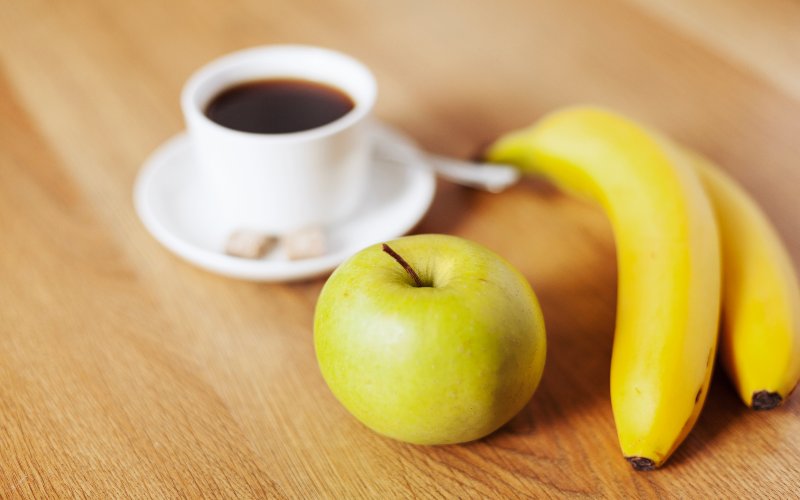14 foods that don’t mix well and why you should avoid them

Food is chemistry, how we combine ingredients influences how our bodies process and benefit from them. It is not just what we eat, but how we pair it.
While food fusions and experimental dishes are trending in restaurants and homes worldwide, nutrition experts caution that not all combinations are kind to the body.
Certain pairings can interfere with digestion, reduce nutrient absorption, or cause discomfort. Backed by research and traditional dietary wisdom, here are 14 food combinations to think twice about:
More To Read
- Home living: 10 essential items Kenyans should replace at least once a year
- Nine common household items that could be silent killers
- Five healthy reasons to add basil to your meals
- As August temperatures drop, here is why you need a sauna or steam bath
- Over one billion Africans unable to afford healthy diet, UN report warns
- How to make irresistible caramel popcorn using a sufuria
1. Milk and citrus
Mixing milk with orange juice, lemon, or pineapple can cause the milk to curdle in the stomach due to its reaction with citric acid. This can lead to bloating or indigestion. Studies in food chemistry show that acidity destabilises milk proteins, explaining the discomfort.
2. Dark chocolate and milk
Dark chocolate is rich in antioxidants like flavonoids, but when paired with milk, absorption of these compounds drops significantly. Research shows milk proteins bind with flavonoids, reducing their cardiovascular benefits.
3. Coffee and banana
Bananas are rich in magnesium, but drinking coffee immediately after eating can interfere with magnesium absorption. Excess caffeine also speeds up digestion, potentially causing bloating or cramping with the starchy fruit.
4. Instant noodles and soy sauce
Instant noodles already contain high sodium levels; adding soy sauce can double or triple this. Excess sodium is linked to hypertension and stroke risk.
5. Alcohol with caffeine or energy drinks
Caffeine and other stimulants in energy drinks mask alcohol’s depressant effects, making drinkers feel less intoxicated than they really are.
According to the US Centres for Disease Control and Prevention (CDC), this “wide-awake drunk” effect increases the likelihood of binge drinking, accidents, and risky behaviour.
Studies in the Journal of the American Medical Association also link the pairing to severe dehydration, heart palpitations, and higher rates of emergency room (ER) visits among young adults.
6. Yoghurt and fruits
Although common in smoothies, mixing yoghurt with acidic fruits like pineapple or strawberries may hinder digestion and cause gut imbalances.
Research on probiotics indicates that high acidity can reduce the effectiveness of probiotics, slowing digestion.
7. Meat and bread
A classic burger and hot dog combination may be tasty, but protein-rich meat and starchy bread require different digestive enzymes. Gastroenterologists explain that when eaten together, it may stay longer in the stomach, causing heaviness or gas.
8. Drinking excessive water during meals
Too much liquid dilutes stomach acid and enzymes, slowing food breakdown and nutrient absorption.
A review in the European Journal of Clinical Nutrition warns that this can hinder the absorption of vital nutrients such as iron and zinc, leaving some people feeling uncomfortably full yet undernourished. Nutritionists recommend sipping water during meals, with larger amounts before or after eating.
9. Beans and cheese
Common in Tex-Mex dishes, heavy in protein and fat, these can overwhelm digestion, causing bloating and gas. A 2019 nutrients study found that high-fat dairy delays gastric emptying, intensifying discomfort with legumes.
10. Pizza and soda
A staple combo in many fast-food joints across Kenya, pizza and soda might satisfy cravings but pack a hidden cost.
Pizza is high in refined carbs, cheese, and fat, while soda floods the body with sugar. Together, the combo causes blood sugar spikes and energy crashes.
Nutritionists caution that when consumed regularly, this fast-food favourite contributes to weight gain, insulin resistance, and metabolic strain.
11. Cucumber and watermelon
This duo looks like the perfect refreshment on a hot day, but nutritionists say the pairing may not sit well with everyone.
Cucumbers act as a mild diuretic, while watermelon is loaded with water and natural sugars. When eaten together, they speed up digestion too much, possibly causing bloating, diarrhoea, or mild dehydration.
12. Eggs and bacon
A breakfast favourite, but a heavy one.
Both eggs and bacon are high in protein and saturated fats. Studies show frequent consumption slows digestion and increases cardiovascular risks.
13. Fish and dairy
This combination is discouraged in several traditional diets.
While scientific backing is limited, some studies suggest dairy may hinder mineral absorption from fish and cause bloating or skin reactions in sensitive individuals.
14. Morning cereals and milk
A classic breakfast staple, but it is not always as healthy as it seems.
Most boxed cereals are high in refined sugar, causing blood sugar spikes followed by crashes, leading to increased hunger. This diminishes the nutritional benefits of milk, turning breakfast into a sugary treat.
Research in the American Journal of Clinical Nutrition shows that the high glycemic load of sweetened cereals undermines the nutritional benefits of milk, turning what looks like a wholesome breakfast into little more than dessert in disguise.
Top Stories Today















































